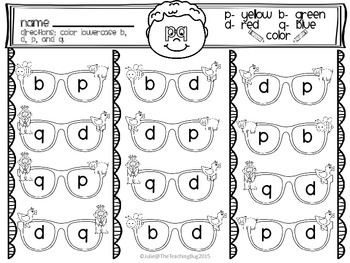The early years of a child's education are crucial for developing foundational skills, and reading comprehension is undoubtedly one of the most important among them. As children progress from kindergarten to first grade, they embark on an exciting journey of exploration and learning. Cultivating effective reading comprehension skills during this phase sets the stage for a lifetime of successful learning. In this blog post, we'll delve into strategies that parents and educators can use to help kindergarten and first-grade students build strong reading comprehension skills.
1. Creating a Reading-Rich Environment
Encouraging a love for reading begins at home and in the classroom:
a. Surround with Books: Fill your child's environment with age-appropriate books on various topics. Let them see reading as an enjoyable activity. Some age appropriate books at this age are "The Three Little Pigs" and "Goldilocks and the Three Bears"
b. Read aloud: Regularly read aloud to your child, using expressive voices and engaging storytelling. this models fluent reading and exposes them to new words.
c. Story Discussions: After reading a story, ask open-ended questions like "What was your favorite part?" or "What do you think will happen next?" This fosters critical thinking.
2. Building Vocabulary
A strong vocabulary is a foundation for comprehension:
a. Word Games: Play word games like "I Spy" or rhyming games. This boosts vocabulary while making learning fun.
b. Word Meaning: When encountering new words, discuss their meanings using simple explanations and examples.
3. Phonics and Phonemic Awareness
Understanding the sounds of language aids in reading:
a. Rhyming Activities: Engage in rhyming games and songs. This hones phonemic awareness, helping children recognize sounds in words.
b. Letter Recognition: Introduce letters and their sounds gradually. Use magnetic letters or alphabet puzzles.
4. Predicting and InferringDeveloping prediction and inference skills enhances comprehension:
a. Picture Walk: Before reading, explore the book's pictures. Ask your child to predict what the story might be about.
b. Discuss emotions: While reading, inquire about the characters' feelings. Encourage your child to infer emotions from the characters' actions.
5. Retelling and Summarizing
Summarizing helps consolidate understanding:
a. Retell Stories: After reading a story, have your child retell it in their own words. This demonstrates their grasp of the plot.
b. Story Elements: Ask about the story's beginning, middle, and end. Discuss characters, setting, and the main problem.6. Active Engagement
Engaging with the text strengthens comprehension:
a. Pointing and Tracking: Encourage your child to follow the words with their finger as you read aloud. This teaches them that reading happens left to right. Examples of pointing and tracking are passages like this which allow students to track as they are reading.
b. Ask "Why" and "How" Questions: Encourage thinking beyond the literal text by asking questions like " Why do you think the character did that?" or "How would you feel in that situation?"
Kindergarten and first grade mark the early stages of a child's reading journey. By creating a reading-rich environment, focusing on vocabulary, developing phonics awareness, practicing predicting and inferring, mastering retelling, and engaging actively, parents and educators can nurture strong reading comprehension skills. Remember, the goal is not just to read words but to understand and connect with content. As children grow into confident readers, these skills will serve as the building blocks for their future academic success and lifelong love of learning.























